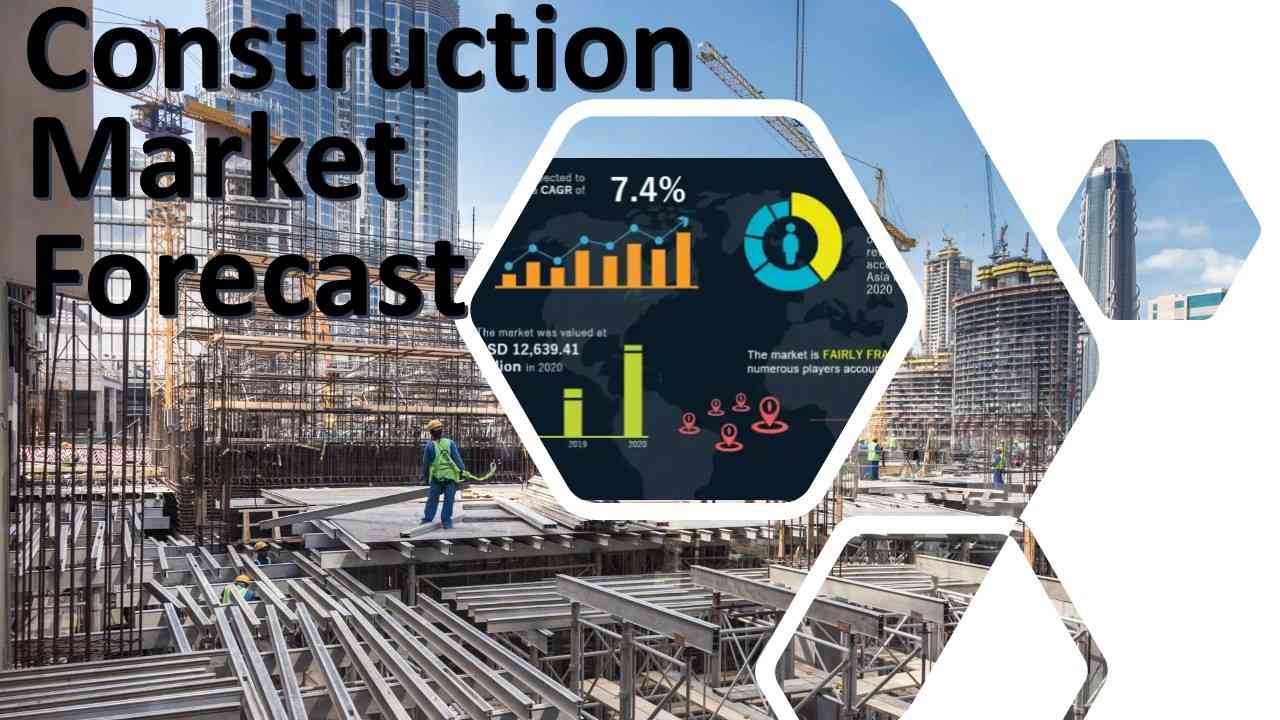Construction Market Forecast: What to Expect in the Coming Years
- By
- Pooja |
- January 20, 2024 |
- Civil Engineering, Construction,

Table of Contents
Technological Advancements Driving Innovation:
Focus on Sustainability and Green Construction:
Urbanization and Infrastructure Development:
Challenges in Supply Chain and Material Costs:
Workforce and Skills Development:
Adoption of Prefabrication and Modular Construction:
Digital Transformation and Connectivity:
Resilience and Adaptability in Construction Practices:
Regulatory Changes and Compliance:
Rise of Public-Private Partnerships (PPPs):
Emphasis on Health and Safety:
Global Economic Recovery and Market Growth:
The construction industry is a dynamic sector that continually evolves in response to economic shifts, technological advancements, and societal demands. Understanding the forecasted trends and expectations in this field is crucial for stakeholders, including investors, developers, contractors, and policymakers. As we look ahead to the coming years, several key factors are poised to shape the construction market landscape.
Technological Advancements Driving Innovation:
Technological innovations are revolutionizing the construction sector, enhancing efficiency, safety, and sustainability. Expect to see a greater integration of Building Information Modeling (BIM), drones, 3D printing, and augmented reality (AR) in construction projects. BIM's utilization for detailed project planning, cost estimation, and clash detection will become more prevalent, optimizing project timelines and reducing errors. Drones are increasingly employed for site surveys, progress monitoring, and safety inspections, offering a cost-effective and time-saving approach. Meanwhile, 3D printing technology is gaining momentum, enabling rapid construction of complex structures and reducing material wastage.
Focus on Sustainability and Green Construction:
Environmental consciousness is driving a significant shift towards sustainable construction practices. With increasing emphasis on reducing carbon footprints, expect a surge in green building initiatives. Renewable energy integration, energy-efficient designs, and the use of eco-friendly materials will be central to construction projects. Net-zero buildings and sustainable infrastructure development are likely to gain prominence, driven by stringent regulations and the growing demand for environmentally responsible structures.
Read More:
Urbanization and Infrastructure Development:
Global urbanization continues at a rapid pace, propelling the need for infrastructural development. The coming years will witness increased investment in urban projects, including transportation systems, smart cities, and affordable housing. Governments worldwide are likely to prioritize infrastructure spending to improve connectivity, address congestion, and enhance quality of life in urban areas. Furthermore, the adoption of smart technologies within cities will create opportunities for innovative construction projects that cater to evolving urban lifestyles.
Challenges in Supply Chain and Material Costs:
Supply chain disruptions and fluctuations in material costs remain significant challenges for the construction industry. Volatility in raw material prices, coupled with shortages in essential supplies, can impact project timelines and budgets. To mitigate these challenges, stakeholders must adopt proactive strategies, such as diversifying suppliers, embracing alternative materials, and implementing robust risk management plans.
Workforce and Skills Development:
The construction industry faces an ongoing challenge in attracting and retaining skilled labor. As experienced workers retire and technological advancements reshape job requirements, there is a growing need to invest in workforce training and development. Collaborations between industry stakeholders, educational institutions, and governments will be essential to bridge the skills gap and ensure a competent workforce capable of handling modern construction methodologies.
Adoption of Prefabrication and Modular Construction:
Prefabrication and modular construction techniques are gaining traction due to their ability to accelerate project timelines while ensuring quality and cost-effectiveness. The off-site fabrication of building components and modules allows for greater precision, reduced construction time, and minimized on-site disruptions. Expect increased utilization of these methods across various construction sectors, especially in commercial and residential projects.
Read More:
Digital Transformation and Connectivity:
The construction industry is undergoing a digital transformation, emphasizing connectivity and data-driven decision-making. Expect an increased reliance on integrated project management systems, cloud-based platforms, and IoT (Internet of Things) devices. These technologies enable real-time collaboration among stakeholders, streamline communication, and provide valuable insights through data analytics. Embracing digital tools fosters transparency, enhances project coordination, and improves overall project outcomes.
Resilience and Adaptability in Construction Practices:
Climate change and its associated risks necessitate a focus on resilient construction practices. Builders and developers will increasingly prioritize designs that can withstand natural disasters, extreme weather events, and changing environmental conditions. Implementing resilient construction methodologies, such as incorporating flood-resistant materials or designing structures for seismic resilience, will become more prevalent to ensure long-term sustainability and durability.
Regulatory Changes and Compliance:
The construction industry operates within a framework of evolving regulations and standards. Anticipate continuous updates in building codes, environmental regulations, and safety protocols. Compliance with these regulations is crucial and requires proactive adaptation by industry players. Keeping abreast of regulatory changes and ensuring strict adherence will be imperative to avoid delays, legal issues, and maintain project integrity.
Rise of Public-Private Partnerships (PPPs):
Public-Private Partnerships will play a pivotal role in funding and executing large-scale construction projects, especially in infrastructure development. Governments worldwide are increasingly collaborating with private entities to finance and manage major projects, leveraging combined resources, expertise, and risk-sharing mechanisms. This trend is expected to expand, fostering innovative solutions to address infrastructure challenges.
Emphasis on Health and Safety:
The construction industry is notorious for its high-risk nature, making safety a top priority. Expect continued emphasis on stringent safety measures, training programs, and the integration of technology to enhance job site safety. Technologies such as wearables, IoT devices, and AI-driven safety systems will be increasingly adopted to prevent accidents, promote worker well-being, and maintain compliance with safety regulations.
Global Economic Recovery and Market Growth:
The construction sector's growth is closely linked to the overall economic outlook. As economies recover from global disruptions, including the COVID-19 pandemic, increased infrastructure spending, government stimulus packages, and a resurgence in construction projects are anticipated. Emerging markets may experience robust growth, while established markets might witness renewed vigor, creating diverse opportunities for construction stakeholders.
In conclusion, the construction industry is at a critical juncture, poised for significant transformations driven by technological advancements, sustainability imperatives, regulatory changes, and economic factors. Embracing innovation, sustainability, resilience, and compliance will be instrumental in navigating the evolving landscape successfully. Stakeholders must adapt to these anticipated trends by fostering collaboration, investing in technology and skills, and embracing sustainable practices to thrive in the dynamic construction market of the future.
Admin, gcelab.com
Please see our Pillar Post to know why we founded gcelab.com.
Read More:

Pooja
Founder at gcelab.com, Pooja is an Entrepreneur unlocking human potential. Working in the Principles of Lean Start-up, Pooja believes in Transparency and User Happiness the most. Pooja’s background in teaching gives her a sophisticated grasp on even the most tedious aspect of course building. She is passionate about people who believe that good is not enough.



